
Last year’s Canada’s Top Ten features list, as Steve Gravestock noted, marked an even split between veteran filmmakers and first-time feature directors. This year looks very different: Seven of the features in our 2023 showcase are debuts, with two more from filmmakers still in the first acts of their careers.
In Meredith Hama-Brown’s shattering Seagrass and Cody Lightning’s hilarious Hey, Viktor!; in Ariane Louis-Seize’s charming Humanist Vampire Seeking Consenting Suicidal Person and Fawzia Mirza’s rapturous The Queen of My Dreams; in Henri Pardo’s beautiful Kanaval and Carol Kunnuk and Lucy Tulugarjuk's spare, bracing Tautuktavuk (What We See); and in Zack Russell’s urgent documentary Someone Lives Here, we share in the discovery of new visions, new voices, new passions.
With their third features, Solo and BlackBerry, Sophie Dupuis and Matt Johnson both demonstrate a masterful sense of environment and character shaped by their previous work. Rounding out the Top Ten, Seven Veils finds Atom Egoyan similarly drawing on his own history, integrating elements of the operas he’s directed over the decades for a characteristically self-reflexive drama about what art demands of the people who create it.
Two of the directors making their feature debuts have seen their short films honoured in previous Top Tens: Louis-Seize’s Les petites vagues in 2018, and Mirza’s The Syed Family Xmas Eve Game Night in 2021. Writer-director Jasmin Mozaffari, whose own first feature Firecrackers was a Top Ten honouree in 2018, is also switching sections: her short film, Motherland, is one of this year’s Top Ten shorts alongside Alisi Telengut’s Baigal Nuur – Lake Baikal, Zoé Pelchat’s Gaby’s Hills, Ryan McKenna’s I Used to Live There, Julien G. Marcotte and Jani Bellefleur-Kaltush’s Katshinau, Raquel Sancinetti’s Madeleine, Eric K. Boulianne’s Making Babies, Edith Jorisch’s Mothers and Monsters, Andrea Nirmala Widjajanto’s Sawo Matang and Nicole Bazuin’s Thriving: A Dissociated Reverie.
If you’re looking for a through-line among the 20 projects TIFF is celebrating this year, there may not be one. Even the thematically similar works are radically different in their styles and tones. Which might be the best thing about the current state of Canadian cinema, honestly: Right now, anything seems possible. Let’s see where this goes.
NORM WILNER
Acting lead programmer for Canada and Industry Selects.
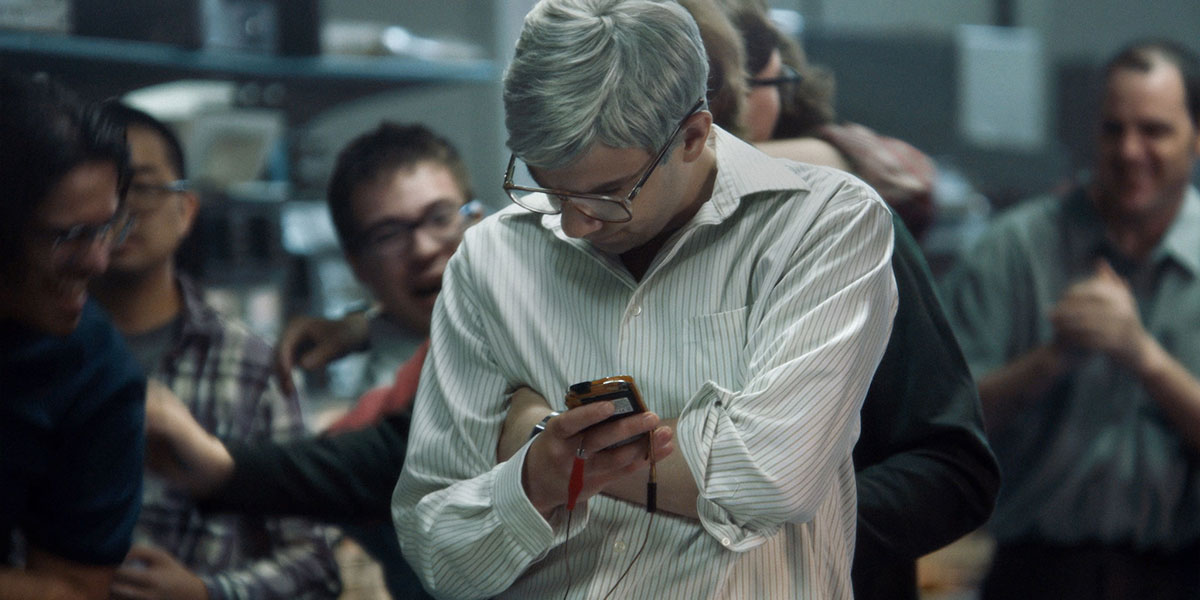
dir. Matt Johnson
Matt Johnson’s idiosyncratic look at the glory days of mobile communications behemoth Research In Motion captures the giddy highs and devastating lows of realizing a once-impossible dream: email, on your phone.
Who says Canadian success stories have to be dull? Matt Johnson’s idiosyncratic look at the glory days of mobile communications behemoth Research In Motion captures the giddy highs and devastating lows of the little Waterloo company that could … until it couldn’t.
Johnson and his regular collaborators, co-writer and producer Matt Miller and cinematographer Jared Raab, have defined themselves with stories of wild-eyed dreamers trying to convince other people to join them in extremely risky ventures: The Dirties, Operation Avalanche, Nirvanna The Band The Show. The RIM story is right in their wheelhouse, going from the Waterloo strip-mall offices, where the eponymous device was created by engineer pals Doug Fregin (Johnson) and Mike Lazaridis (Jay Baruchel), to the sterile boardrooms of Manhattan, where CEO Jim Balsillie (Glenn Howerton) dazzled America’s telecoms with the impossible dream of “e-mail on your phone.”
Baruchel and Howerton build a perfectly toxic partnership as the fretful, nerdy Lazaridis and the dead-eyed corporate shark Balsillie, the former playing a symphony of stress twitches against the latter’s carefully calibrated alpha-male posturing. Both actors have played versions of these men before, most notably in Tropic Thunder and It’s Always Sunny in Philadelphia, but Johnson gives them the space to go above and beyond here … even as his own character fades into the background, the better to re-emerge as the film’s moral centre. Not a bad trick, really.
NORM WILNER
Content advisory: coarse language
Supported by:

Funding for the Science on Film Showcase is provided by the Alfred P. Sloan Foundation’s Public Understanding of Science and Technology program, which supports books, radio, film, television, theatre, and new media to reach a wide, non-specialized audience and to bridge the two cultures of science and the humanities.
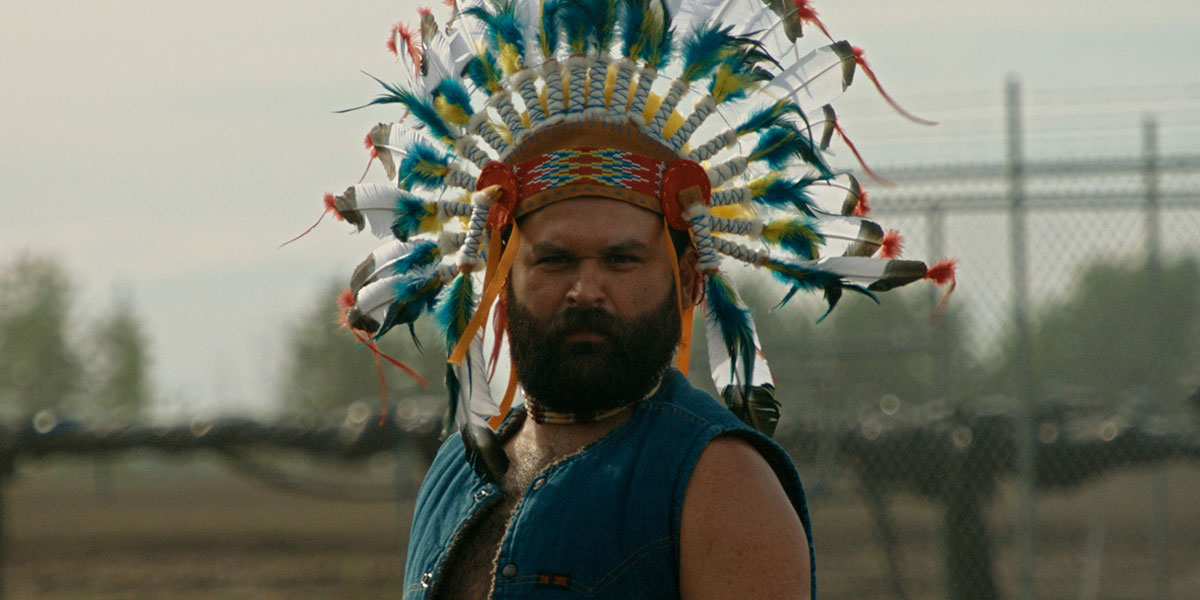
dir. Cody Lightning
A struggling Indigenous actor tries to rejuvenate his career by getting a sequel made to the beloved film Smoke Signals, in star and director Cody Lightning’s wildly funny debut mockumentary.
In recent years, Chris Eyre’s 1998 film Smoke Signals has been the source of a thousand memes shared by Indigenous people. Among the most popular have been images of Thomas Builds-the-Fire (Evan Adams) calling out “Hey, Victor!” to Victor Joseph (Adam Beach) in a distinctive rez accent.
In Hey, Viktor!, actor Cody Lightning, who played the child version of Beach’s character, revisits that beloved film as director, co-writer, and — playing an outsized version of himself — mockumentary lead. Eager to boost his floundering acting career, the fictional Cody looks to cash in on his old childhood role. He wants to make a sequel for Smoke Signals, in which he would star (as “Viktor,” to avoid a potential lawsuit), alongside the original cast. His first move: hijack the film crew which is documenting his intervention.
This wild comedy follows a man with plenty of vices, driven by money and fame as he alienates his family and friends (such as his producer Kate, played by Hannah Cheesman) on his quest to make this sequel. Fans of the film’s inspiration will have that nostalgic itch scratched — we may or may not see many of Smoke Signals’ core cast — but there are so many outrageous moments and jokes that it’s a fun ride to go on, even if you haven’t seen the original.
Hey, Viktor! is both a mockumentary — one that plays on the idea of fame and cultural capital — and, much like the film it’s tapping into, a journey of self-discovery.
KELLY BOUTSALIS
Official Selection, 2023 Toronto International Film Festival
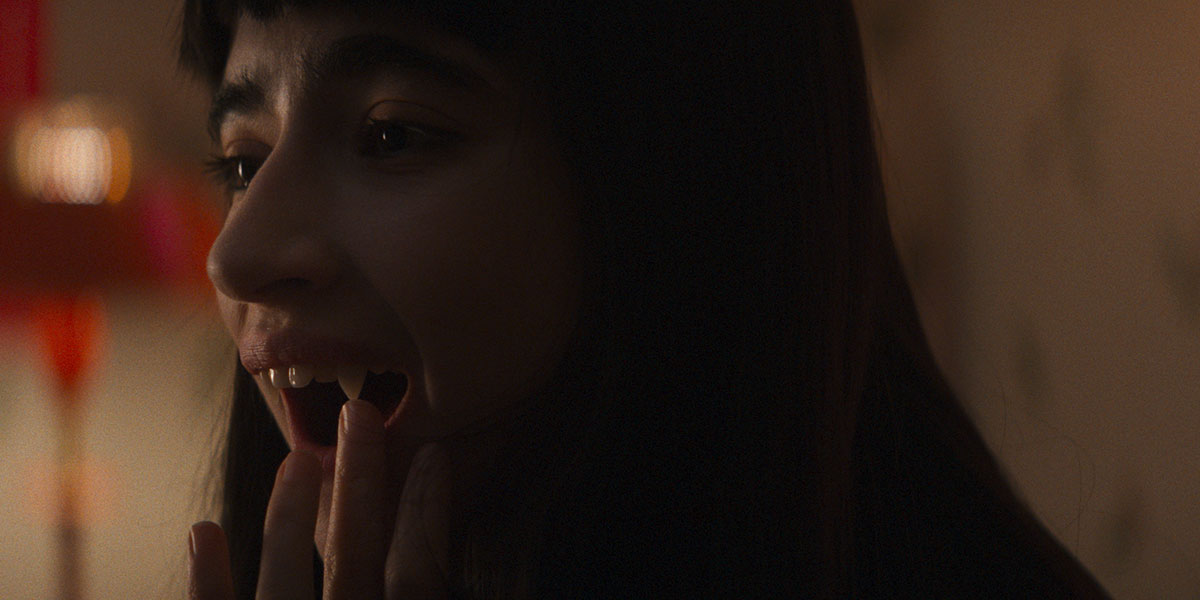
Humanist Vampire Seeking Consenting Suicidal Person
dir. Ariane Louis-Seize
Ariane Louis-Seize’s deadpan horror comedy finds droll humour in the plight of a young Montreal bloodsucker who can only feed on people for whom she feels sympathy.
Quebec filmmaker Ariane Louis-Seize — whose sultry, stylish coming-of-age study Les petites vagues was named one of Canada’s Top Ten shorts in 2018 — graduates to features with this deadpan horror comedy about a young Montreal bloodsucker who can only feed on people for whom she feels sympathy.
Sasha (Sara Montpetit) is a teenage vampire — well, “teenage” is relative in their world — with an empathy problem. Unlike the rest of her clan, Sasha’s fangs don’t come out when she’s hungry or sensing fear; she needs to feel a personal connection to her prey.
And then Sasha meets Paul (Félix-Antoine Bénard), an actual teenager convinced he’ll never enjoy anything in life. She befriends him, introduces him to her world and its secrets, and he happily volunteers to be her next meal. Which would be great, except for the whole empathy thing.
Right from their pitch-perfect prologue, Louis-Seize and co-writer Christine Doyon place us in a heightened genre world that nods in the direction of stylists like Tim Burton and Wes Anderson — Sasha has definitely seen a few of their movies — but with its own distinctive heartbeat, populated by distinctive Quebecois faces like Funkytown’s Sophie Cadieux and Steve Laplante and Marie Brassard, both of Viking (TIFF ’22).
The real charmers, of course, are the youngsters at the centre of this story — especially Montpetit, whom Festival audiences may be shocked to realize is the same young woman who starred in Maria Chapdelaine (TIFF ’21) and Falcon Lake (TIFF ’22). But that’s part of the fun.
NORM WILNER
Official Selection, 2023 Toronto International Film Festival
Content advisory: themes of suicide; mature themes, violence
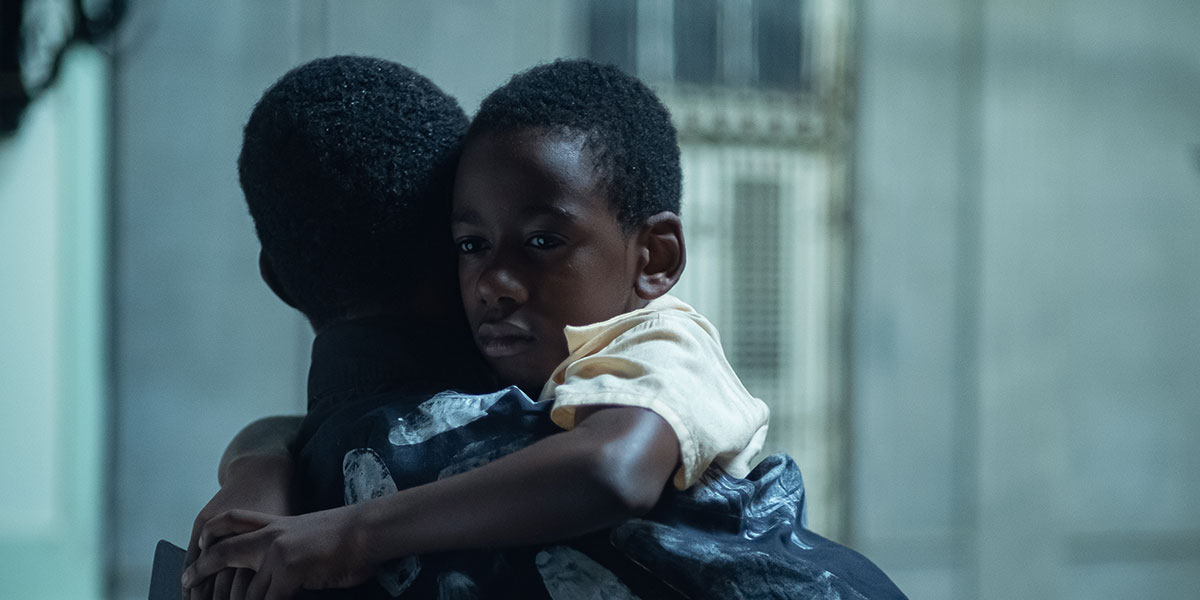
dir. Henri Pardo
Kanaval is the story of one young boy’s journey from a small port town on the coast of Haiti in 1975, during the town’s celebrations of carnival, before a traumatic event forces him and his mother to flee to Quebec.
Rico (Rayan Dieudonné) is a curious boy, living with his schoolteacher mother Erzulie (Penande Estime) in a small port town on the coast of Haiti in 1975. During an annual celebration, and despite his mother’s warnings of danger, he slips out into the night to witness legends come to life and the masks and costumes of revellers.
We see Kanaval — the Haitian version of Carnival — from the point-of-view of Rico, as a blending together of real and magical moments. Everything is exuberant and fascinating, until he returns home to find his beloved mother being attacked.
Migrating to safety in a small rural town in Quebec, Rico and Erzulie try their best to get accustomed to their new world with the assistance of an older couple that warmly takes them in. While Rico tries to make sense of this snowy province, with hunting, snowmobiling, and racist bullies all around, he’s unable to grasp why his mother, still grappling with her trauma, is becoming distant from him. So he does what many six-year-olds do, and conjures up an imaginary friend, Kana, from Haitian myth, who becomes his guide to figuring out the alien world he’s found himself in.
Anyone who is part of a diaspora and has landed in Canada, or remembers feeling forgotten by the adults in their lives, will connect to this beautiful film about finding a new place to call home.
KELLY BOUTSALIS
Official Selection, 2023 Toronto International Film Festival
Content advisory: coarse language, bullying
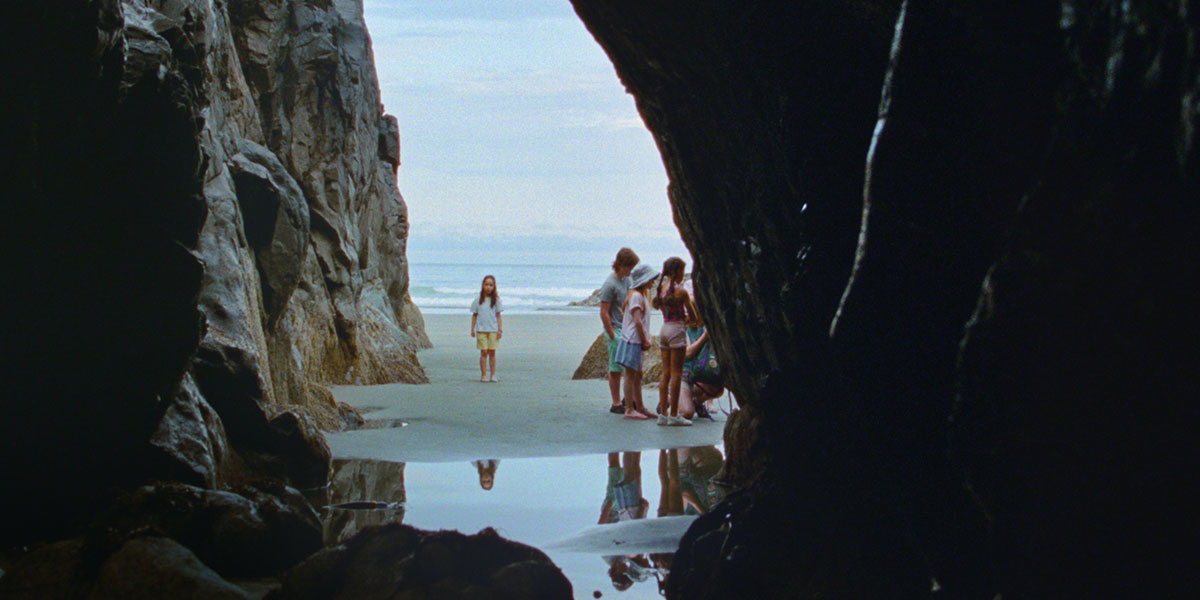
dir. Meredith Hama-Brown
A week at a couples’ therapy retreat — where kids can explore the Pacific coast while their parents work on their issues — exposes the fractures in a biracial family, in Meredith Hama-Brown’s debut feature.
Set a decade or so in the past, Meredith Hama-Brown’s debut feature tells the story of a family on the verge of coming closer together — or drifting further apart.
Judith (Ally Maki) is Japanese Canadian; her husband Steve (Luke Roberts) is white. They’re having some problems communicating with each other, so they’ve found a family retreat on the Pacific coast where kids can hang out while their parents confront one another in group-therapy sessions. But the time together exposes new fractures in the family’s internal dynamic: 11-year-old Stephanie (Nyha Breitkreuz) starts acting out, while six-year-old Emmy (Remy Marthaller) insists she can feel Judith’s recently departed mother watching over them all.
Whether or not Emmy is right, something is certainly hanging over this family — a cloud of tension and dissatisfaction between Judith and Steve that neither can fully articulate, but both recognize. And the more time Judith spends around another couple, Carol (Sarah Gadon) and Pat (Chris Pang), the more she worries that saving her marriage might not be the best move.
Drawing on personal themes through a fictional lens and also reflecting on her own racial identity, writer-director Hama-Brown (TIFF Filmmaker Lab, 2020) crafts a knotty, insightful drama about the interwoven complexities of marriage and parenthood, and the mistakes families pass on from one generation to the next. Driven by the powerful performances of Maki (the TV series Wrecked and Hacks) and newcomer Breitkreuz, Seagrass announces the arrival of a perceptive new voice in Canadian cinema.
NORM WILNER
Official Selection, 2023 Toronto International Film Festival
Content advisory: mature themes, coarse language, sexually suggestive scenes
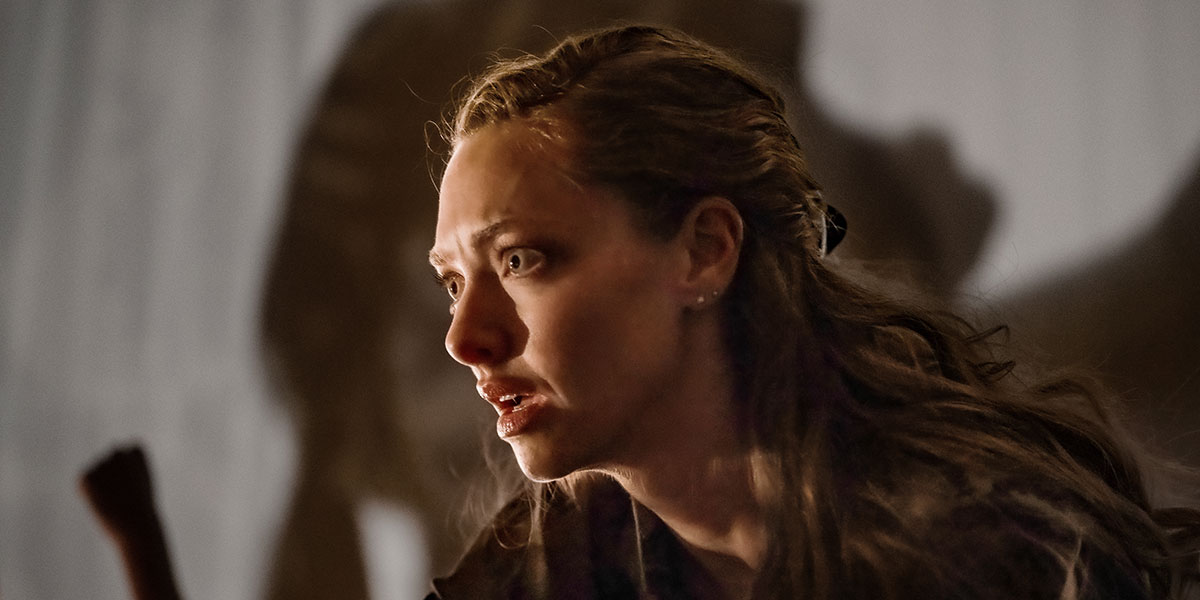
dir. Atom Egoyan
Atom Egoyan and his Chloe star Amanda Seyfried reunite for this knotty psychodrama about a young theatre director forced to re-examine her own trauma while working on a remount of Salome.
Bequeathed a job remounting a Canadian Opera Company production of Salome after the death of its revered creator, her mentor, a young director (Amanda Seyfried) is forced to re-examine her tangled personal history with the project, the deceased man, and her own family.
Recently separated from her husband (Mark O’Brien), Seyfried’s Jeanine finds herself adrift, trying to explain her vision to the confused opera stars and taking comfort in reconnecting with an old friend (Douglas Smith) who’s understudying the role of Jochanaan. His fellow understudy (Diggstown star Vinessa Antoine) worries she’s about to miss her only chance to play Salome — while her partner, prop master Clea (Rebecca Liddiard), drifts into a dangerous situation with the blustering star, Johann (Michael Kupfer-Radecky).
For decades, Atom Egoyan’s cinema has explored families shattered by loss and betrayal, parents and children becoming alien to one another, the tangle of legacies, and monomania. Seven Veils continues his icy fascination with manipulation and abuse, as entitled men impose their will on the women in their orbits and leave them to deal with the fallout.
This project lets Egoyan indulge his long-time love of opera, incorporating this year’s COC production of Salome, which he directed, into the film, and casting stars Kupfer-Radecky and Ambur Braid as fictional performers. And his reunion with Seyfried — who played the eponymous role in his drama Chloe (TIFF ’09) — lets the star demonstrate a range she rarely gets the chance to explore.
NORM WILNER
Official Selection, 2023 Toronto International Film Festival
Content advisory: themes of sexual assault; mature themes, sexual situations, coarse language

dir. Sophie Dupuis
Set in Montreal’s vivacious drag scene, this tender character study from writer-director Sophie Dupuis (Underground) focuses on a talented young performer whose past and present merge in unexpected ways.
Set in Montreal’s vivacious drag scene, this tender character study from writer-director Sophie Dupuis (Underground) blends emotional intelligence with irresistible flair. Focusing on a talented performer whose past and present merge in unexpected ways, Solo is an incisive tale of desire, dependence, and hard-won self-actualization.
Simon (TIFF ’17 Rising Star Théodore Pellerin) is a skilled makeup artist by day and a sensational drag artist by night. Young and carefree, his energies are overwhelmingly set on honing his act and partying — until he meets Olivier (Félix Maritaud), a handsome, charming fellow drag artist from France. The two become lovers and artistic partners, crafting sexy, flamboyant duets that thrive on their intrinsic chemistry. Just as Simon is getting accustomed to this exciting new relationship, his long-estranged mother, Claire (Quebec screen icon Anne-Marie Cadieux), swoops back into his life. A revered opera singer, Claire is in town for a show — and Simon must work around her schedule if he wants to see her. As Olivier becomes more domineering and Simon struggles to get Claire’s attention, disquieting similarities emerge between lover and mother. Neither Olivier nor Claire seems to truly respect Simon. Both offer just enough love to hook Simon, but prove emotionally unavailable the moment things become complicated.
Dupuis’ portrait balances empathy with critical distance: it’s obvious Simon is a good-hearted person with reasonable needs, but it’s just as obvious he’s caught in a pattern of codependence, desperately seeking approval from two strong personalities equally incapable of granting it. In the end, the one person Simon truly needs to commune with is himself.
Official Selection, 2023 Toronto International Film Festival
Content advisory: mature themes, coarse language, simulated sexual content
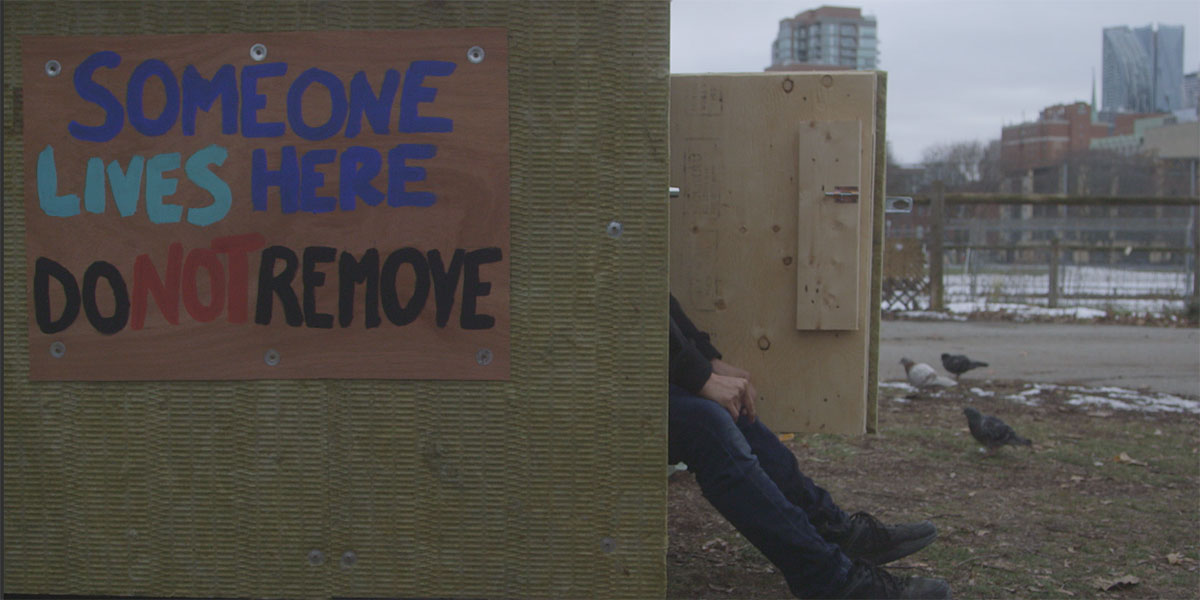
dir. Zack Russell
During the pandemic, carpenter Khaleel Seivwright tries to address Toronto’s apathetic response to the housing crisis, one tiny shelter at a time.
The COVID-19 pandemic exposed a great many weaknesses in Toronto’s social safety net, not the least of which was the fantasy that the city had a viable strategy to care for people experiencing homelessness. As the economy collapsed and more and more people lost their homes, tent communities sprung up in public parks all over the city. And as fall moved into winter, Khaleel Seivwright realized tents wouldn’t be warm enough.
A carpenter by trade, Seivwright started building “tiny shelters” – small, energy-efficient spaces that could be used by anyone who needed them – for Toronto’s unhoused people. Warmed by body heat and designed to be fire-resistant, they were embraced by the media and supported by the public… until the city levelled an injunction against Seivwright’s work.
Zack Russell’s documentary accompanies Seivwright as he continues the project while pushing back against a bureaucracy that clearly isn’t interested in anything beyond empty platitudes and the optics of “humanely” sending the police in to clear encampments. Producers Matt King and Andrew Ferguson previously explored Toronto’s crumbling municipal politics with the Ford-era satire Filth City, but there’s nothing funny about where we’ve ended up. Someone Lives Here ― which takes its name from a tag on one of the tiny shelters ― is a film about one man’s mission to bring dignity to his neighbours, one home at a time.
NORM WILNER

dirs. Carol Kunnuk, Lucy Tulugarjuk
An evocative, drawn-from-life tale from directors Carol Kunnuk and Lucy Tulugarjuk about two siblings’ attempts to heal and overcome trauma during the pandemic.
With a verité documentary feel, Tautuktavuk (What We See) draws from its filmmakers’ lives to tell a powerful story of siblings doing their best to connect during the pandemic. Co-directed by Carol Kunnuk and Lucy Tulugarjuk, Tautuktavuk (What We See) presents a relationship between two sisters — one in Montreal and the other in Nunavut — who each deal with trauma in their own way.
Set during the beginning of the global COVID-19 outbreak, the film is told almost entirely through video chats, revealing how isolating the lockdowns are for the sisters — also played by Kunnuk and Tulugarjuk, blurring fact and fiction — especially with the significant physical distance between them.
As Tautuktavuk (What We See) unfolds, the contrast between the sisters’ experiences begins to narrow. At first, we see extremely familiar scenes of each person speaking to their device’s camera, alone from their home. But this begins to open up to communal settings. The elder sister Saqpinak (Kunnuk) is often surrounded by grandchildren and hosts a live-TV event with elders performing ajaajaa songs. The younger sister Uyarak (Tulugarjuk) is with her beautiful daughters in her Montreal apartment, and gets a traditional hand-poked tattoo.
This connection between the sisters and their culture is also the impetus for opening up hard discussions about domestic and childhood sexual abuse. Uyarak has a lot of questions about an experience of childhood sexual abuse that has recently bubbled to the surface for her. Saqpinak, however, waits until they’re finally reunited in Igloolik to share her own story.
KELLY BOUTSALIS
Official Selection, 2023 Toronto International Film Festival
Content advisory: themes of sexual violence

dir. Fawzia Mirza
Fawzia Mirza’s stylish feature debut mashes up the textures of Indian cinema and a Canadian coming-of-age picture, tracing key moments in the lives of a mother and daughter born three decades apart.
In 1999, the sudden death of her father Hassan (Hamza Haq) sends queer Muslim grad student Azra (Amrit Kaur) flying back to her ancestral home in Pakistan, where her stern mother Mariam (Nimra Bucha) demands she play the role of the perfect grieving daughter. But through flashbacks to Mariam's own life in Karachi 30 years before, we see the connections uniting mother and daughter, starting with their shared love of the Bollywood star Sharmila Tagore.
Fawzia Mirza's bright, energetic first feature, which grew out of their 2012 short film of the same name, explores the chasm between individual desires and cultural expectations, fluidly slipping between the textures of Indian cinema and the concerns of a Canadian coming-of-age picture. Mirza builds a convincing sense of time and place, showcasing a great dual performance from Kaur (The Sex Lives of College Girls) as both Azra and the younger Mariam and allowing a charismatic supporting turn from Haq (Transplant) as both versions of Hassan. As the older Mariam, veteran actor Bucha, whom you may recognize from Ms. Marvel, harmonizes with Kaur, showing us hints of the woman Mariam used to be within the person she’s become.
Sort Of cinematographer Matt Irwin gives the 1969 sequences the vivid primary colours and lighting of the era's Bollywood movies while keeping the 1999 material more subdued and naturalistic, and editor Simone Smith (a Canadian Screen Award winner for I Like Movies, TIFF ’22) shuffles us confidently between the two time frames. Azra might feel lost, but this movie knows exactly where it’s going.
NORM WILNER
Official Selection, 2023 Toronto International Film Festival
Content advisory: mature themes
Programme notes by Jason Anderson
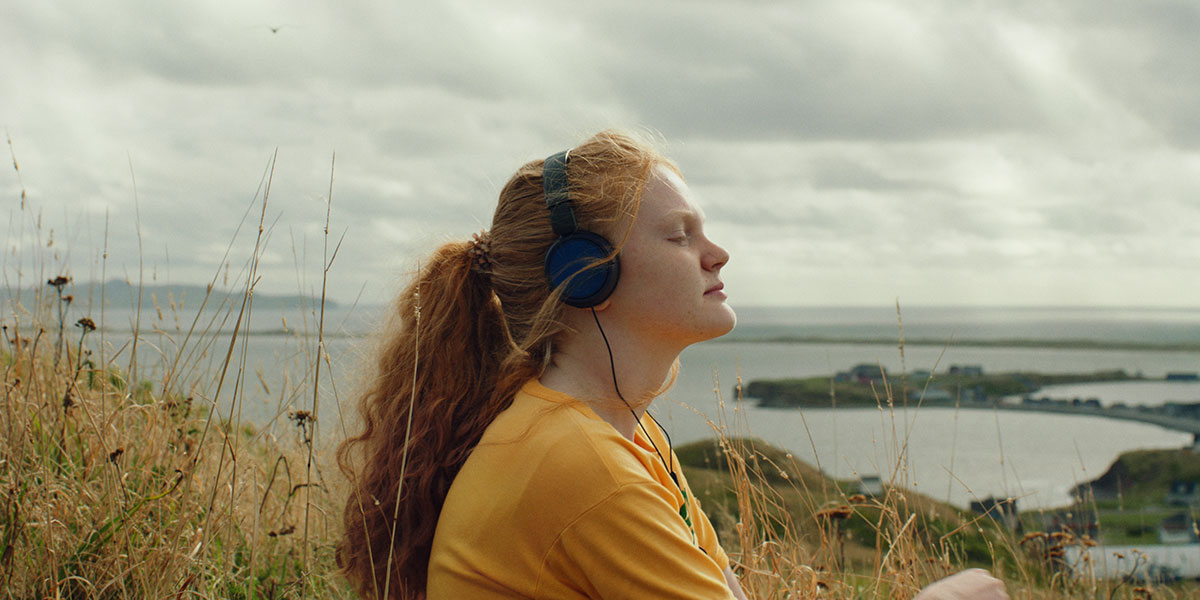
Gaby's Hills
dir. Zoé Pelchat
For the 13-year-old heroine of Zoé Pelchat’s astutely observed and wonderfully performed drama, the changes wrought by puberty prompt wider realizations about how she is seen and what that may mean.
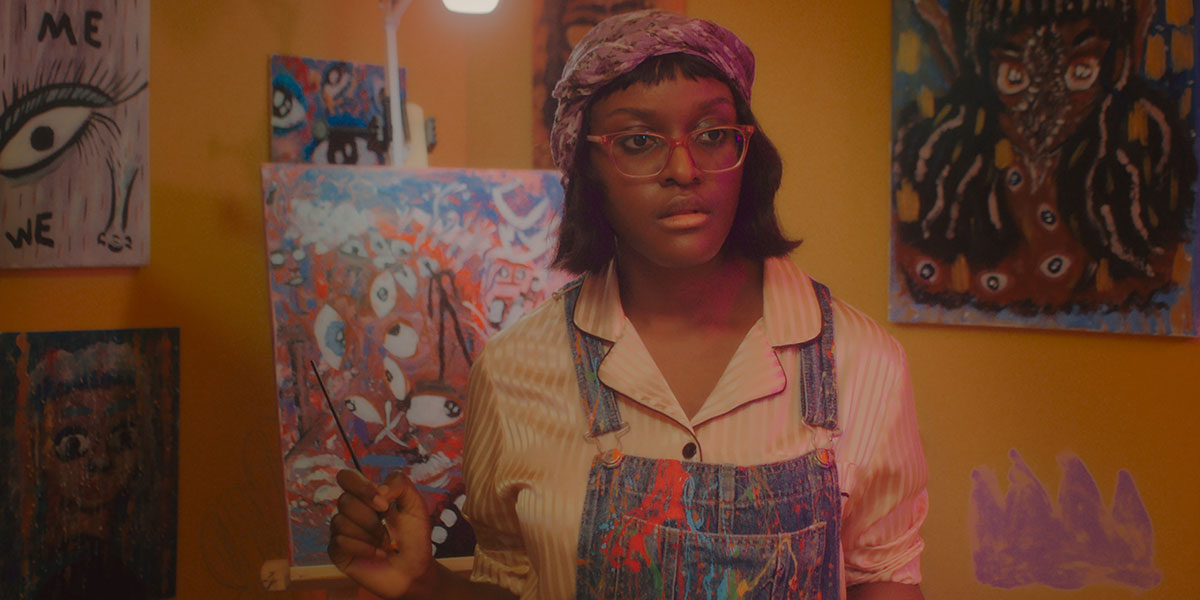
Thriving: A Dissociated Reverie
dir. Nicole Bazuin
Based on the lived experience of a Black, non-binary, disabled artist and former sex worker, Nicole Bazuin uses playfully surreal and continually surprising means to share a wholly remarkable story of survival and self-acceptance.
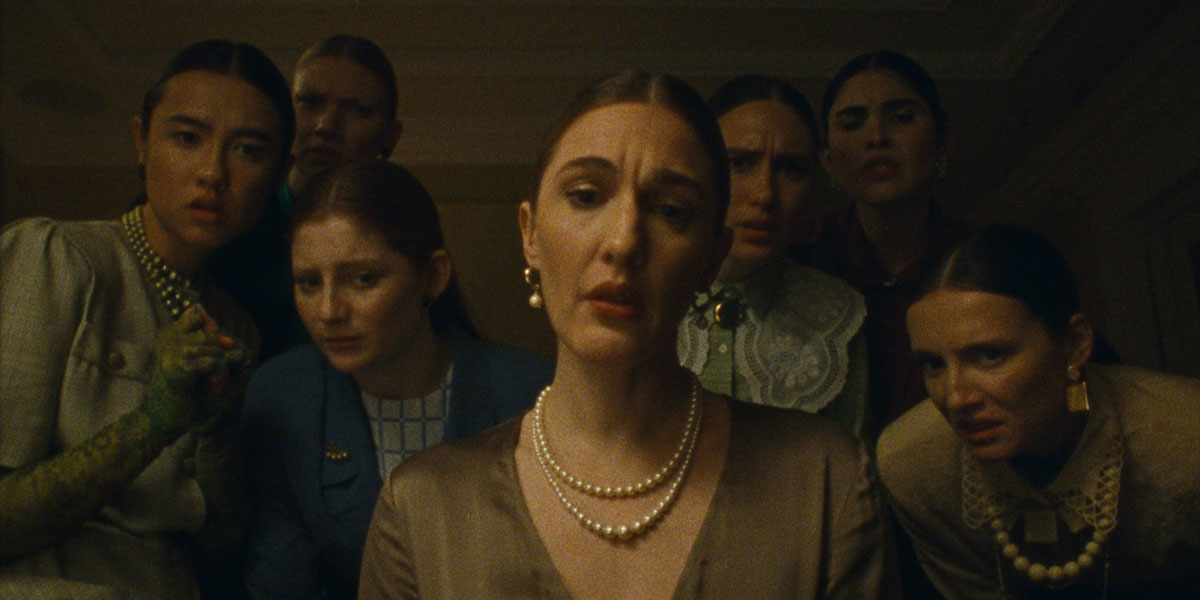
Mothers and Monsters
dir. Edith Jorisch
As played by Mylène Mackay in Edith Jorisch’s singular satire, an elegant woman presides over a banquet, during which her sometimes bizarre nature serves as an astute reflection on ideals and anxieties about modern motherhood.

Baigal Nuur - Lake Baikal
dir. Alisi Telengut
In this uncommonly tactile animation, Alisi Telengut reimagines the formation of a sacred lake in Siberia and draws connections between an endangered Indigenous language and matters of history, ecology, and humanity.
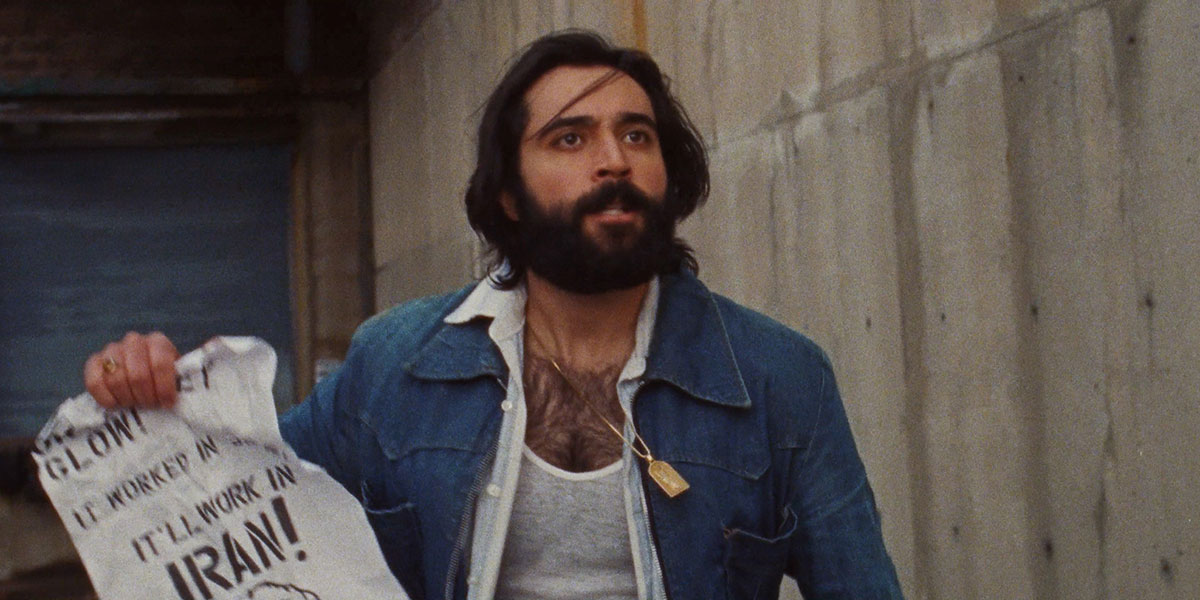
Motherland
dir. Jasmin Mozaffari
Brandishing all the energy and texture that made her debut feature Firecrackers so special, Jasmin Mozaffari’s new film tells the story of a man whose personal crises are compounded by the tensions that surround him as an Iranian in America circa 1979.
Programme notes by Jason Anderson
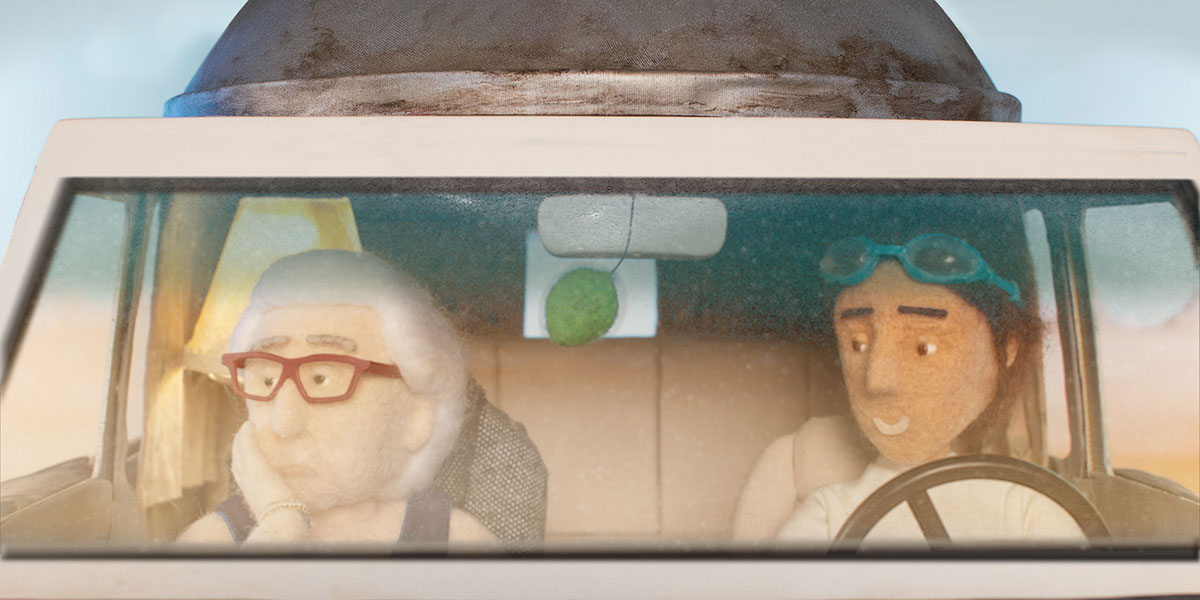
Madeleine
dir. Raquel Sancinetti
In Raquel Sancinetti’s delightful merger of animation, documentary, and road-trip movie, two friends born 67 years apart reach a new level of closeness thanks to a decidedly fanciful beach excursion.
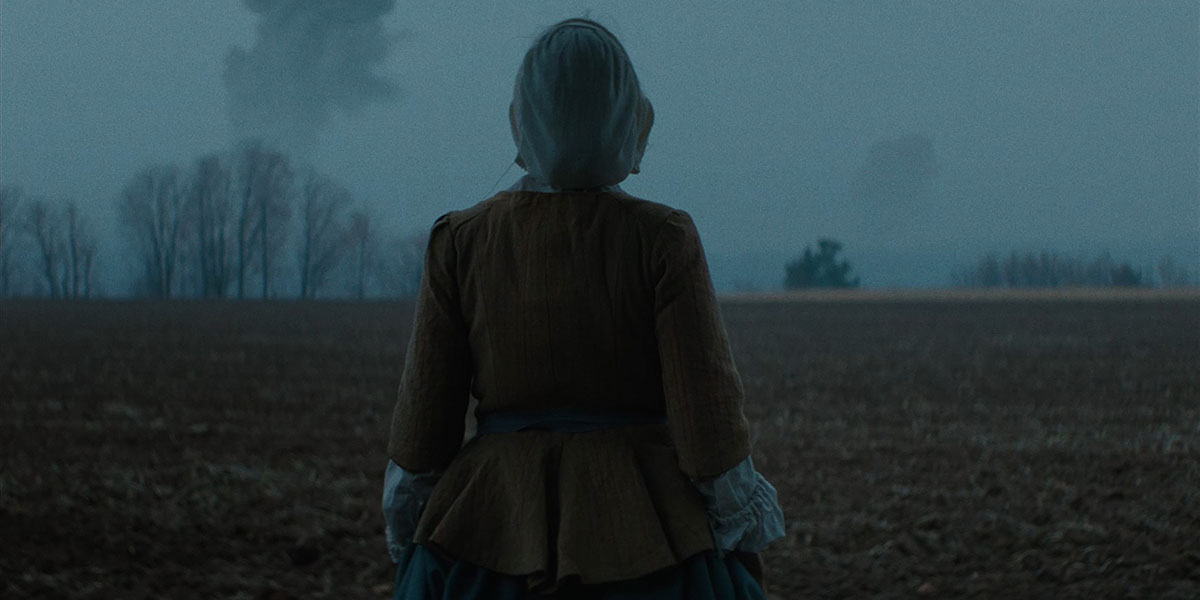
Katshinau
dirs. Jani Bellefleur-Kaltush, Julien G. Marcotte
In this quietly shattering drama by Jani Bellefleur-Kaltush and Julien G. Marcotte, an Indigenous slave experiences a life of toil and drudgery in a surgeon’s household in 18th-century New France, until a chance discovery upends everything.

Sawo Matang
dir. Andrea Nirmala Widjajanto
In this bracing science-fiction parable by Andrea Nirmala Widjajanto, a young Pribumi woman faces the reality of how she’s valued by her society in an imagined version of post–New Order Indonesia.
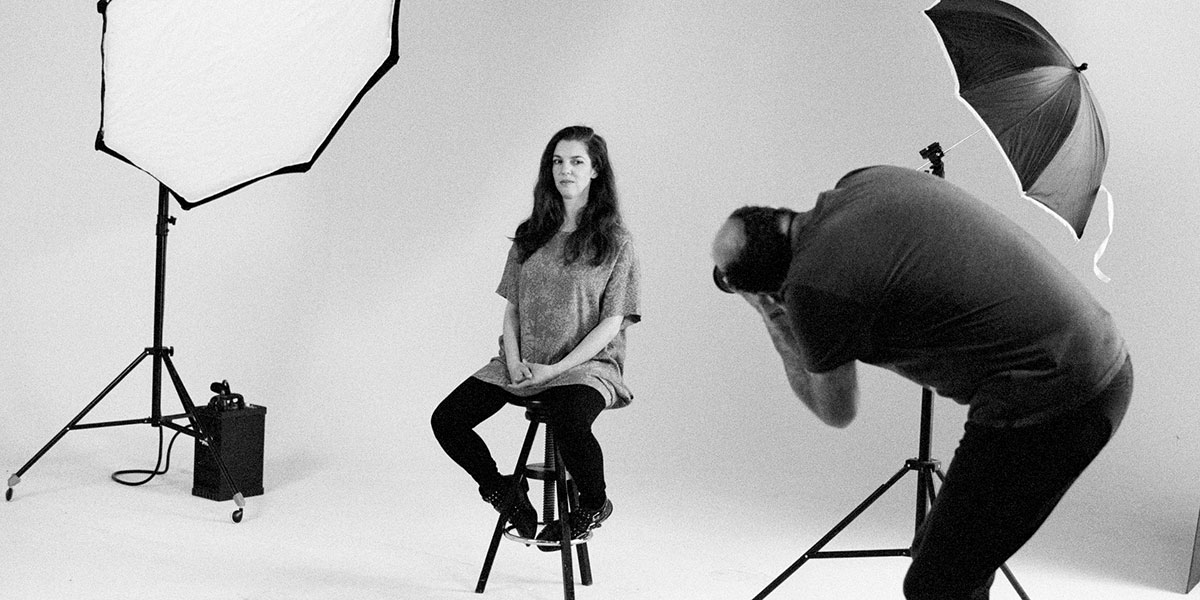
I Used to Live There
dir. Ryan McKenna
A photographer who’s losing his vision and a woman looking for a new start have a fateful encounter in Ryan McKenna’s stylistically bold yet emotionally rich merger of fiction and documentary.
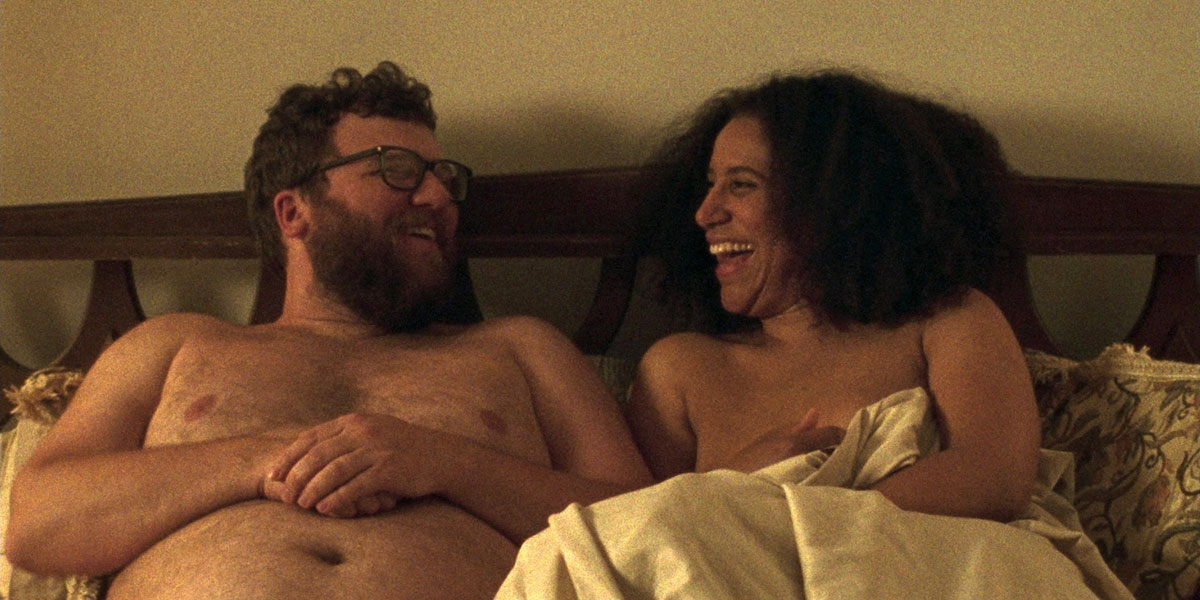
Making Babies
dir. Eric K. Boulianne
Co-starring with Florence Blain Mbaye as two halves of a couple whose fertility struggle plays havoc with their lives together, writer-director Eric K. Boulianne delivers an empathetic and eminently relatable kind of relationship story.
Join TIFF on Thursday, January 25, 2024 for a full day of industry programming with the Canada’s Top Ten Industry Forum, kicking off a weekend of screenings celebrating the best in a new Canadian film.
Canada’s Top Ten Industry Forum looks to ignite industry discussions with a sequel to last year's Bill C-11 dialogue, an exploration into the future of accessibility, and an engaging "Meet the Streamers" panel.
What’s included?
• Access to all three sessions
• Entry to Canada’s Top Ten Opening Cocktail following the day’s programming
Canada’s Top Ten screenings run January 25-28, 2024 at TIFF Lightbox.
Dialogues: How to Work With Streamers in Canada
1:30pm - 2:30pm
Canada has emerged as one of the leading global consumers of subscription video content. Whether you’re looking to launch your film in the digital space, or on the hunt for a development partner, join us for an exclusive session on navigating the streaming landscape with key industry leaders. From producing to pitching, discover the trade secrets of collaboration and distribution straight from the industry's power players.
Please note that this session will have in-cinema open captions.
Perspectives: Shaping the Future of Accessibility on Screen
3:15pm – 4:15pm
From advocating policy change to influencing production through accessibility and authentic disability representation, the Disability Screen Office (DSO) has been a driving force in breaking down barriers and transforming the Canadian film landscape. Gain insight from both the DSO and creators as they share their experiences navigating the challenges and triumphs of working in the film industry.
Share your insights, raise questions, and actively participate in shaping a more accessible, inclusive and diverse film industry.
Please note that this session will have in-cinema open captions and ASL interpreters.
5 - 6pm
What does it take to build a thriving, competitive domestic market in the digital era? Traditional Canadian broadcasters and producers discuss the impact of the Online Streaming Act (Bill C-11) and what steps they think the CRTC needs to take next. Industry guests at last year’s Forum advocated for a policy that would protect Canadian creators by prioritizing employment of Canadians and IP ownership. This year, broadcasters and production companies weigh in on their priorities for what comes next.